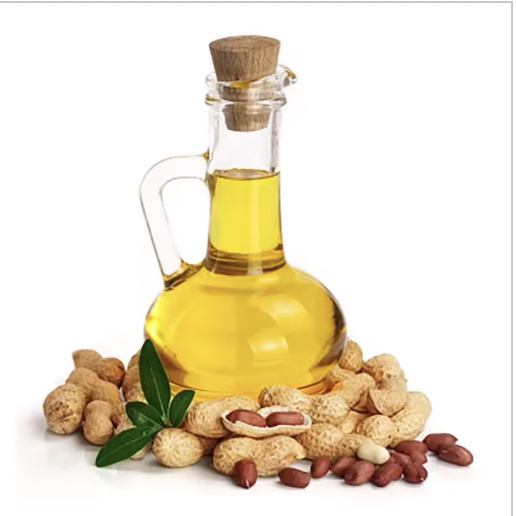Understanding the Commercial Appeal of Refined Peanut Oil
The food service industry's overwhelming preference for refined peanut oil stems from its exceptional versatility and superior performance characteristics. This premium cooking oil has become a cornerstone ingredient in commercial kitchens worldwide, particularly when purchased in bulk quantities. From high-end restaurants to large-scale food distributors, the demand for refined peanut oil continues to grow, driven by its unique combination of practical benefits and economic advantages.
The decision to stock refined peanut oil in bulk quantities represents more than just a purchasing choice – it's a strategic investment in quality, efficiency, and consistent food preparation. Industry professionals recognize that this specialized oil delivers exceptional value across multiple applications, from deep frying to stir-frying, making it an indispensable component of their operations.
Superior Cooking Properties and Performance
Temperature Stability and Smoke Point Advantages
Refined peanut oil stands out for its remarkably high smoke point of 450°F (232°C), significantly higher than many other cooking oils. This elevated smoke point ensures that the oil maintains its stability even under intense heat, preventing the formation of harmful compounds and allowing for consistent cooking results. Commercial kitchens particularly value this characteristic as it enables them to prepare various dishes at different temperatures without compromising food quality.
The thermal stability of refined peanut oil also translates to extended use life, making it an economically sound choice for bulk purchases. Unlike oils with lower smoke points, it can withstand repeated heating cycles while maintaining its integrity, resulting in fewer oil changes and reduced operational costs.
Flavor Enhancement and Versatility
The neutral flavor profile of refined peanut oil makes it exceptionally versatile in commercial cooking applications. Unlike unrefined alternatives, this carefully processed oil allows the natural flavors of ingredients to shine through without imparting any overwhelming nutty notes. This characteristic is particularly valuable in establishments serving diverse cuisine types, as the oil adapts seamlessly to various cooking styles and flavor profiles.
Professional chefs appreciate how refined peanut oil complements rather than competes with their carefully crafted dishes. The oil's clean taste ensures that delicate flavors remain distinct while providing the perfect medium for heat transfer and cooking consistency.
Economic Benefits of Bulk Purchase
Cost Efficiency and Storage Advantages
Purchasing refined peanut oil in bulk quantities offers significant cost advantages for commercial establishments. The economy of scale principle applies strongly here, with bulk pricing typically offering substantial savings compared to smaller quantity purchases. Additionally, the extended shelf life of refined peanut oil makes it an ideal candidate for bulk storage, as it remains stable and maintains its quality for extended periods when properly stored.
Smart inventory management becomes possible with bulk purchasing, allowing businesses to maintain optimal stock levels while minimizing the frequency of reorders. This approach not only reduces procurement costs but also ensures continuous availability of this essential ingredient.
Operational Streamlining
Bulk supply of refined peanut oil facilitates smoother kitchen operations and improved workflow efficiency. Having adequate quantities on hand eliminates the risk of running out during peak service hours and reduces the time and labor associated with frequent reordering and receiving smaller shipments. This operational efficiency is particularly valuable for high-volume establishments where any interruption in supply can impact service quality.
The standardized quality of refined peanut oil in bulk supply also ensures consistency in food preparation, an essential factor for restaurants maintaining strict quality control standards. This consistency helps establish and maintain customer satisfaction while simplifying staff training and kitchen procedures.
Health and Safety Considerations
Allergen Management and Processing Standards
Contrary to common misconception, refined peanut oil undergoes extensive processing that removes virtually all allergenic proteins. This rigorous refinement process makes it generally safe even for individuals with peanut allergies, though establishments should always exercise appropriate caution and maintain clear communication with their customers regarding ingredients.
The commercial refining process adheres to strict quality control standards, ensuring that each batch meets specific purity and safety requirements. This standardization is particularly important for restaurants and distributors who must maintain consistent food safety protocols.
Nutritional Benefits and Quality Assurance
Refined peanut oil offers several nutritional advantages that appeal to health-conscious consumers. It contains high levels of monounsaturated fats and beneficial compounds while being naturally free of trans fats. These characteristics align well with current dietary trends and health recommendations, making it an attractive choice for establishments focusing on healthier cooking methods.
Quality assurance is further enhanced through the oil's resistance to oxidation and rancidity, particularly when purchased from reputable bulk suppliers who maintain proper storage and handling procedures. This stability ensures that the oil maintains its nutritional properties throughout its intended use period.

Environmental and Sustainability Impact
Sustainable Sourcing Practices
The production of refined peanut oil often involves sustainable agricultural practices, with many suppliers implementing responsible farming methods and supporting local peanut farmers. Bulk purchasing can actually contribute to more sustainable supply chains by reducing packaging waste and optimizing transportation efficiency.
Modern refinement processes are increasingly adopting environmentally conscious practices, minimizing water usage and implementing energy-efficient technologies. This commitment to sustainability resonates with environmentally conscious businesses and their customers.
Waste Reduction and Recycling
Bulk supply of refined peanut oil naturally leads to reduced packaging waste compared to smaller container formats. Many suppliers also offer recycling programs for bulk containers, creating a more circular economy approach to oil supply management. Additionally, used oil can often be recycled for biodiesel production, providing an environmentally responsible disposal option.
Commercial kitchens can implement efficient oil management systems when working with bulk quantities, maximizing usage while minimizing waste. This approach not only benefits the environment but also improves the operation's bottom line.
Frequently Asked Questions
How long can refined peanut oil be stored in bulk quantities?
When properly stored in a cool, dark place, refined peanut oil in bulk containers can typically maintain its quality for 12-18 months. The oil's stability and resistance to rancidity make it ideal for long-term storage, though it's important to follow supplier recommendations for optimal storage conditions.
What makes refined peanut oil different from other cooking oils for commercial use?
Refined peanut oil distinguishes itself through its high smoke point, neutral flavor profile, and exceptional stability during high-temperature cooking. These characteristics, combined with its extended reuse capability and consistent performance, make it particularly valuable for commercial cooking applications.
Is bulk refined peanut oil cost-effective for smaller restaurants?
Even smaller establishments can benefit from bulk refined peanut oil purchases, particularly if they frequently use deep fryers or prepare high-volume items. The key is to accurately assess usage patterns and storage capabilities to determine the optimal bulk quantity that balances cost savings with practical storage limitations.

 EN
EN
 DA
DA
 AR
AR
 NL
NL
 FI
FI
 FR
FR
 DE
DE
 EL
EL
 HI
HI
 IT
IT
 JA
JA
 KO
KO
 NO
NO
 PL
PL
 PT
PT
 RU
RU
 ES
ES
 SV
SV
 TL
TL
 ID
ID
 SR
SR
 UK
UK
 VI
VI
 HU
HU
 TH
TH
 TR
TR
 FA
FA
 AF
AF
 MS
MS
 GA
GA
 MK
MK
 HY
HY
 KA
KA
 BN
BN
 LA
LA
 MN
MN
 NE
NE
 MY
MY
 KK
KK
 UZ
UZ
